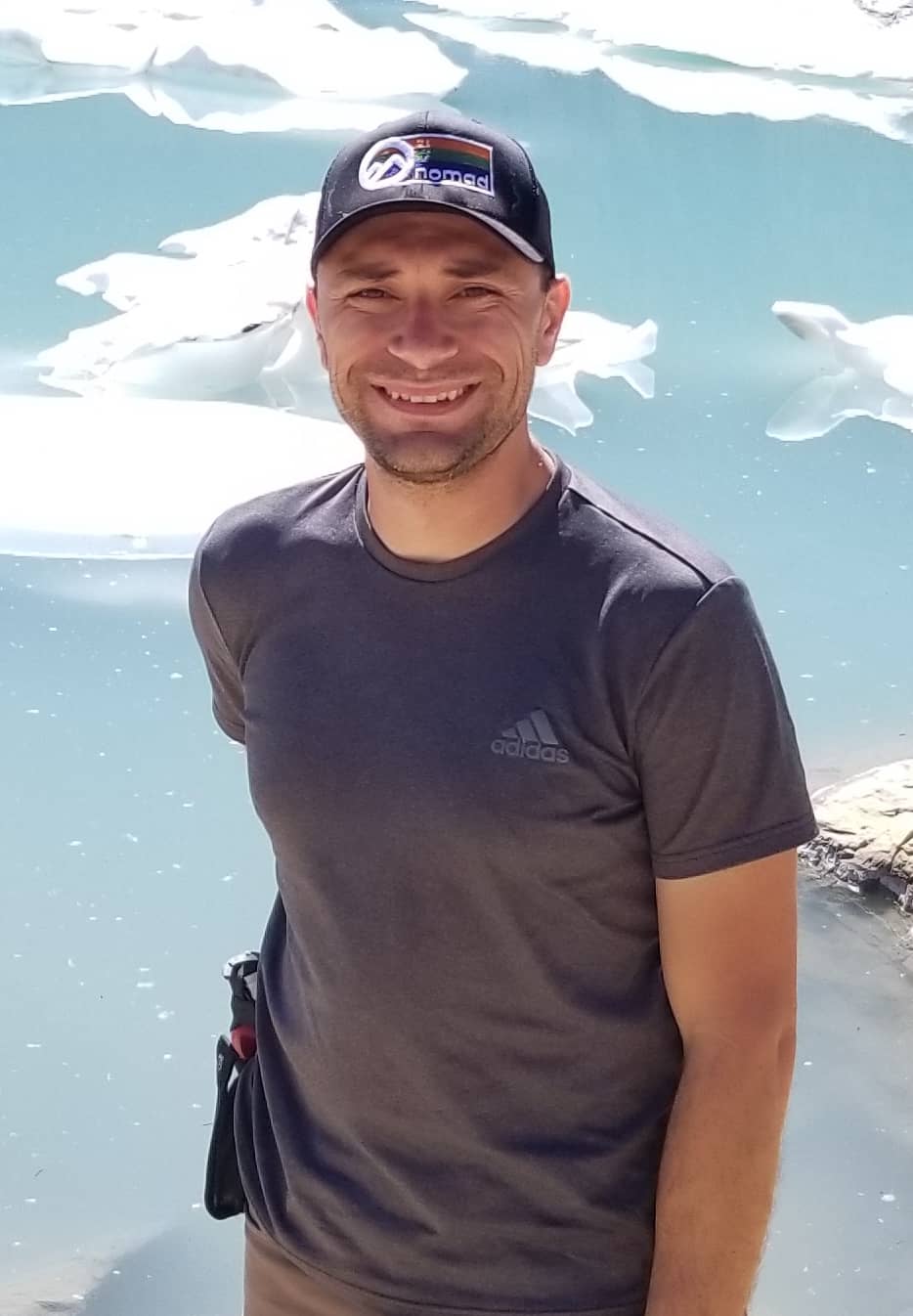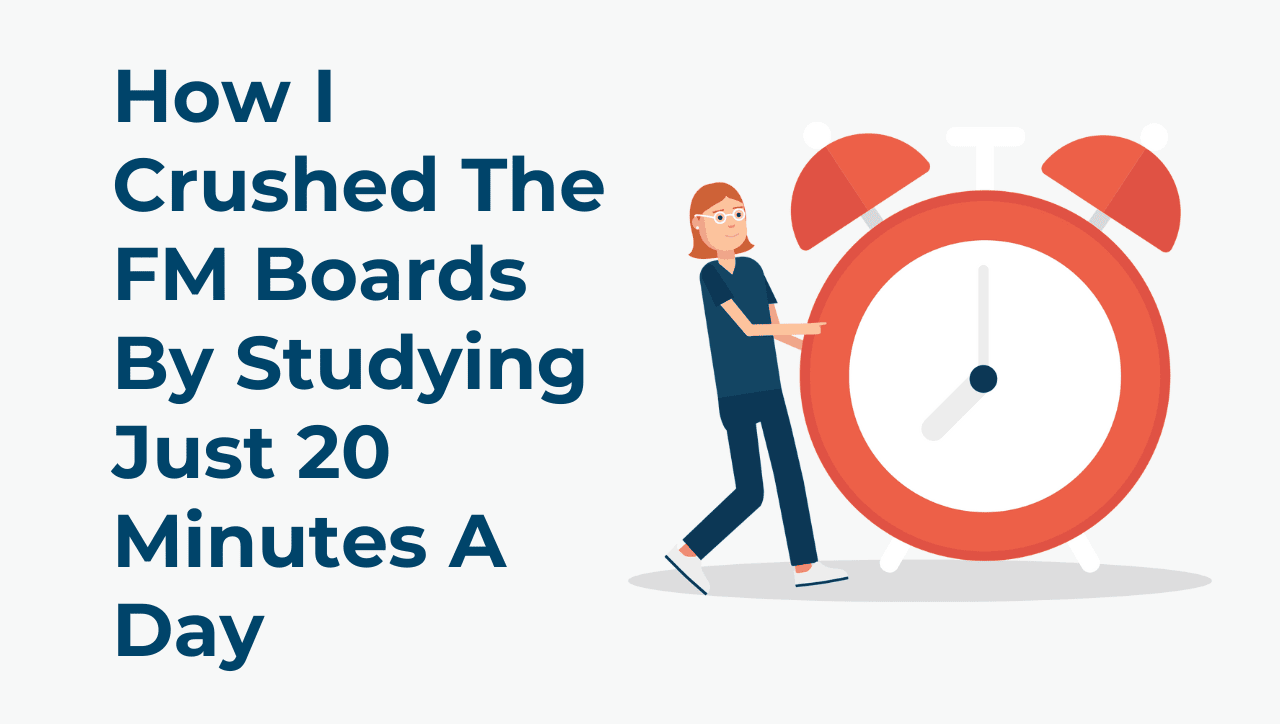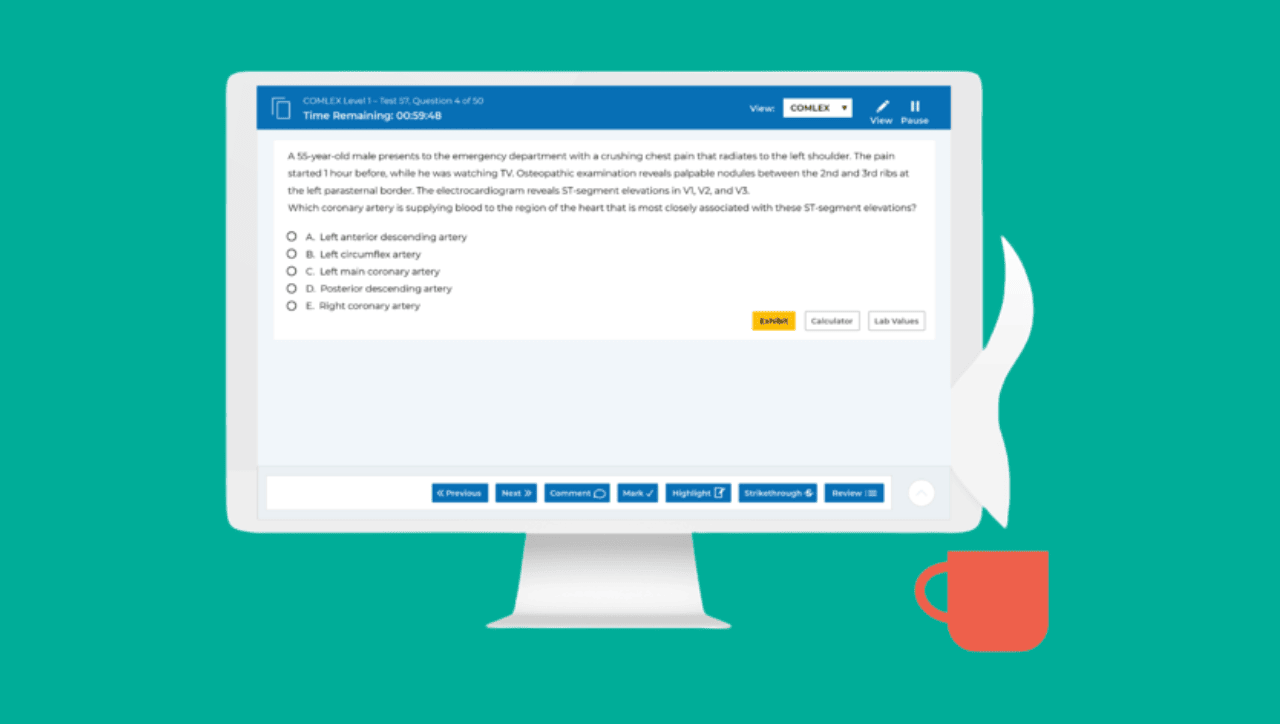How I Study Smarter for the ABFM Board Exam [Study Tips Series]

Mike Ferraro, DO, shares his advice and study tips for family medicine residents preparing for their ABFM boards.
First, study every day. After 12-14 hour days on the wards or 10 hours days in clinic, it is really hard to retain the information you are studying at the end of the day. I found that studying in the morning for 15-20 minutes per day over the course of 6-8 months to be the best way I could fit in regular studying with my residency schedule.
Find a Time and Place to Study that Works for You
I use my my home office. I’ve actually found that studying in the morning after I wake up is a really great fit for me. During med school, I would study at the end of the day, and many times was too tired to take something away from it. In residency, I started reading 15-20 minutes in the morning while drinking my coffee before going into work. I replaced the general reading with focused studying, questions, and review topics. It was incredibly helpful to study this way, especially because I was typically pretty worn out after a long day.

Research ABFM Study Tools
I’ve used different question banks, AAFP magazines, review topics from rotations, and flashcards. I’ve found that as I got closer to being an attending, the practice questions with good explanations, such as the TrueLearn ABFM qbank, were most helpful.
Focus on Your Blind Spots
I would go through one question bank and take notes on questions that I would get wrong, especially those in 2 categories: Ones that I was certain were correct and ended up being wrong, and ones that I had no idea what the answer was. These were my blind spots, so I would highlight them by taking notes. Typically, I would write down topics on notecards and fill in details on the card or make notes of helpful lists with buzzwords. I would then review 2-3/day prior to doing my questions in the morning.

Balance Studying with Your Other Priorities
It is pretty sad to say, but it took me until preparing for my ABFM boards to figure out how to study to retain knowledge long term instead of just cramming. During my 3rd year of residency, I was chief, held a moonlighting position at 3 different places in town and still had residency responsibilities, so it was really important for me to figure out how to find dedicated time for studying. I had been reading in the mornings while drinking my coffee, before leaving the house for the day (something I started at the end of intern year) and at first tried to continue that plus study at the end of the day.
The first 3 days I tried studying at night, I fell asleep studying all 3 days. I figured I would try it out in the morning to replace my reading (as I was still pursuing/reviewing medical knowledge) and it worked great. I would start the day off on the right foot, feeling accomplished for getting the studying in, and I retained the information so much better. I actually started this process in September for an April exam, which was also huge. Giving myself 20 minutes a day for 7-8 months was incredibly helpful. It gave me time to review weak areas, but also confirm what I was learning/studying during the day while I was treating patients and performing my other duties. I have continued to read every morning and it has provided a huge boost to my knowledge and career.
Know Which Study Methods Work Best for You
Studying at night (see above) and reading AAFP journals to study. Also cramming…see above. Ultimately, I found that doing questions in the morning and taking brief notes on blind spots to be incredibly helpful.


